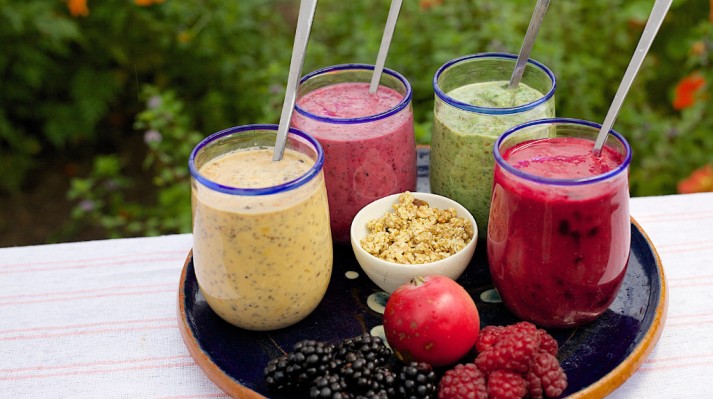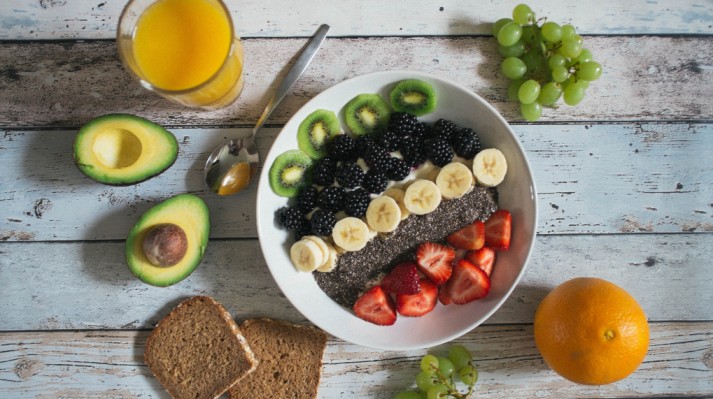I’m Elakkana Pandiyan, Head of Nutrition at QUA Nutrition. With over eight years of experience as a certified nutritionist specializing in diabetes, sports, renal, and maternal & pediatric nutrition, I’ve had the privilege of transforming the health of more than 600 clients. From national athletes like Deepak Chahar to individuals facing hormonal imbalances, I’ve seen firsthand how proper nutrition can heal and empower.
One of my favorite areas of focus is gut health. It’s amazing how much of our overall well-being starts in the gut. A healthy gut doesn’t just aid digestion; it also strengthens immunity, impacts mental health, and plays a central role in how we feel day-to-day. Let’s explore how we can take charge of our gut health through food and lifestyle.
Good gut health is a vital aspect of one’s overall well-being. It helps with digestion, bolsters immunity, and even contributes to one’s mental health. Central to this is the gut microbiome, which refers to a community of microorganisms that are located in one’s gut. It is necessary to understand that one can positively influence this through diet as it increases nutrient absorption and immunity. This guide focuses on what gut-health foods to eat, what foods to avoid, and how to ensure that one’s gut stays healthy over time.
What is the Gut Microbiome?
The gut microbiome consists of trillions of microorganisms, including bacteria, fungi, and viruses, that live symbiotically in the digestive system. This complex ecosystem plays a vital role in:
- Digestion: Breaking down food into nutrients for the body to absorb.
- Immunity: Acting as the first line of defense against harmful pathogens.
- Mental Health: Regulating mood and behavior through the gut-brain axis.
Emerging research reveals that the gut microbiome impacts not just physical health but mental well-being, showcasing its central role in holistic health. A diverse and balanced microbiome fosters optimal functioning of the digestive system and prevents issues like bloating, constipation, and inflammation.
How Diet Impacts Gut Health
Diet is one of the most influential factors in determining the diversity and health of the gut microbiome.
- Gut-Nourishing Foods: Foods rich in fiber, prebiotics, and probiotics feed beneficial bacteria, ensuring they thrive.
- Harmful Foods: Processed foods, refined sugars, and unhealthy fats can harm the microbiome, leading to imbalances such as dysbiosis—a state where harmful bacteria overpower the good ones.
By making intentional dietary choices, we can nourish the gut microbiome, improving digestion, immunity, and overall health.
Best Foods for Gut Health
To simplify your gut health journey, here’s a detailed table of foods to include in your diet:
| Food Type | Examples | Benefits for Gut Health |
| Probiotic Foods | Yogurt, kefir, kimchi, sauerkraut | Replenish beneficial bacteria and enhance microbial diversity |
| Prebiotic Foods | Garlic, onions, bananas, asparagus | Feed good bacteria and promote growth |
| High-Fiber Foods | Whole grains (oats, quinoa), legumes (lentils, beans), leafy greens (spinach, kale) | Improve digestion, add bulk to stool, and nourish gut bacteria |
| Omega-3 Rich Foods | Fatty fish (salmon, mackerel), chia seeds, flaxseeds | Reduce gut inflammation and support the gut lining |
| Polyphenol Foods | Berries (blueberries, raspberries), green tea, dark chocolate | Promote the growth of beneficial bacteria and improve gut resilience |
| Fermented Drinks | Kombucha, miso soup | Provide probiotics and improve digestive efficiency |
These foods, consumed regularly, contribute to a healthier gut microbiome, supporting digestion, immunity, and mental well-being.
Foods to Avoid for Gut Health
Just as some foods support gut health, others can harm it. Here’s a table for easy reference:
| Food Type | Examples | Why to Avoid |
| Processed Foods | Chips, packaged snacks, frozen meals | Contain additives and preservatives that disrupt gut microbiota balance |
| Artificial Sweeteners | Aspartame, sucralose | Can reduce beneficial bacteria and cause bloating |
| Fried Foods | French fries, fried chicken | Slow digestion and promote the growth of harmful bacteria |
| Alcohol | Beer, wine, spirits | Damages the gut lining and reduces microbial diversity |
| Refined Sugars | Pastries, candies, soft drinks | Feed harmful bacteria and increase inflammation |
| Red/Processed Meats | Sausages, bacon, ham | Linked to inflammation and reduced good bacteria |
| Dairy (for sensitive individuals) | Milk, cheese, cream | Can cause bloating and discomfort for those with lactose intolerance |
Avoiding these foods can prevent gut imbalances, allowing the microbiome to thrive.
Also read: Ice Biriyani – A Gut Health Hero – Pazhaya soru – Kanji
Tips for Supporting Gut Health Through Diet
- Eat a Variety of Foods: A diverse diet ensures your gut microbiome receives the nutrients needed to thrive. Include vegetables, fruits, whole grains, and proteins in your meals to encourage bacterial diversity.
- Incorporate Fermented Foods: Fermented foods like yogurt, kimchi, and kombucha introduce probiotics to your gut, replenishing beneficial bacteria and improving digestion.
- Focus on Prebiotics: Foods like garlic, onions, bananas, and asparagus act as fuel for gut bacteria, promoting growth and balance in the microbiome.
- Stay Hydrated: Proper hydration supports the gut lining and aids in the smooth digestion of food. Herbal teas can also offer digestive benefits.
- Manage Stress: High stress disrupts the gut-brain connection. Practices like yoga, mindfulness, and deep breathing help reduce its impact on digestion.
- Limit Sugar and Processed Foods: Refined sugars and processed snacks harm gut bacteria. Opt for whole foods and natural sweeteners to maintain balance.
- Chew Food Thoroughly: Eating mindfully and chewing well reduces strain on the gut, ensuring better nutrient absorption.
By adopting these dietary practices, you can nurture a healthy gut and improve overall well-being.
Conclusion
Everything starts with the gut because it affects multiple processes within the body such as immunity, digestion, and even a person’s mental wellbeing. This means taking gut-promoting foods that include prebiotics, fiber, probiotics, and omega-3s, and avoiding processed foods, alcohol, and unhealthy fats helps to create a balanced gut microbiome. Improve your gut health takes time but the payoffs are worth the process.
At Qua Nutrition, we help people to improve their health with the help of tailored nutrition plans. Our nutritionists and dietitians specialize in making individualized nutrition programs for your gut. Contact Qua Nutrition and improve your gut health starting today. Contact us now to make your gut-friendly diet plan.









